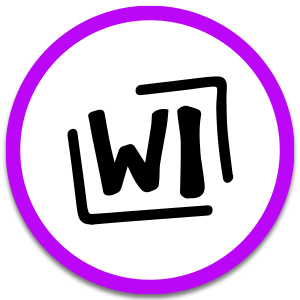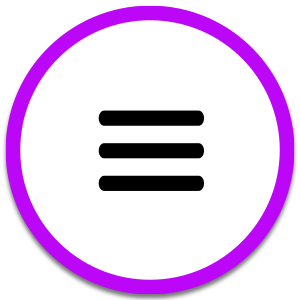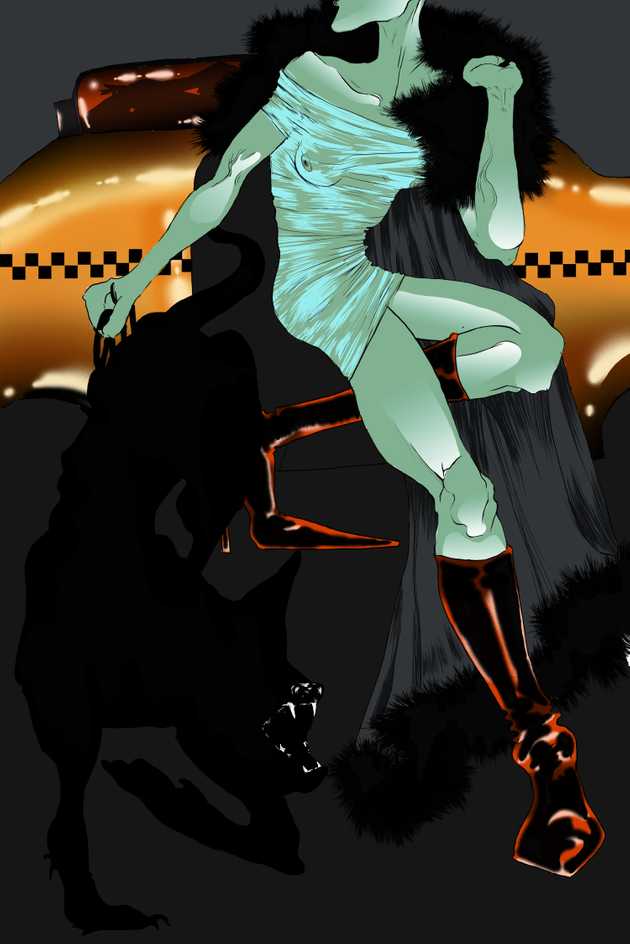An Interview with Amanda Gorman
Interview by Najya Williams
Najya: Amanda! It’s so great to have the honor and privilege of interviewing you about your piece, “Sestina for My Sisters.” Let’s dive right in! First and and foremost, I loved your piece! When we first read it in our discussion, I was like, bro, this is so raw, so striking, but it really resonates with me as a Black woman on so many different levels. So just off the cuff, tell me about what tell us more about your inspiration for this piece? How was this piece born?
Amanda: Yeah! So this piece was born in my sophomore year, during this time of this movement about [...] sexual assault. And I was actually in this poetry class, where I saw tens of thousands of women sharing their pain on the internet and I decided to write this piece, Sestina for my Sisters. For me, it was a way to play with shape, play with this poetic form with a topic that felt raw and changing in a way that this structure is not.
N: Fitting for the title, you chose to write in the form of a sestina, which is not a style that most people know about and know how to do well. Why did you choose to do this? What did you hope to achieve? Tell us about how you chose to break and play with the form.
A: A [teacher] quoted, I think Toni Morrison, in saying: “Don’t let the form deform you.” And she tells that to her students because she always teaches them that form, whether they be the sonnet, haiku, or other types of poetry, all tend to feel very limiting when you begin the conversation with a formulaic type of poem. And the reason why I tell myself that quotation is to remind myself that there’s an incredible amount of liberty in sounds. You may choose to play with the ending line in each stanza and the way those lines change in itself is a pattern. So, the last kind of sounds in the poem that I’m writing: ays, eeks, ant, to, iver. Those are the sounds that I’m playing with and for me, how creatively can I be with sound and create a pantheon of the female experience. So for me, I loved playing with “pants” because the idea that the clothes women wear have justified the assault of women really pierces me on many levels. So playing with that sound of pants both as panties, both as the essence of pants. I used it as panther later [...] So for me, it wasn’t let me do a sestina and constrain and organize and sanitize this experience. It was, “how can I use sound to create a multidimensional commentary on #MeToo.”
N: What did writing this poem teach you about yourself, about your womanhood?
A That’s a great question. It’s a learning experience before it’s a teaching experience. The thing that I learned is that as much as I pull from these topics, there is always a parallel to nature in my poetry. For example, the poem begins by the river, which represents the occasion I’m writing in, by the Charles River, and being in that natural ambience, has influenced the poetry I’m writing. Also, it really forced me to unravel the ways I approach my own pain. It made me realize that I am never able to talk about; I don’t talk about sexual assault [...] because of the personal pain it brings for me. So for me, this poem is my dance with the subject. I discuss the subject via nature. The topic of sexual assault is so potent, so powerful, so painful, that if I were to stare in its eyes directly, something about me would crumble. I have to approach the topic in some type of slow dance because it enables me to access that pain without being controlled by it. Sestina is a really great pathway for that because you really focus on form and less so about the horrors of feeling the pain of that trauma.
N: In Stanza 1, we are introduced to the Black Girl Reading by the River? Who does she represent?
A I don’t refer to myself in the poem explicitly. I am Black girl by the river and that is in part me trying to encompass and recognize my individual experience while that in and of itself is an attempt to give myself privacy and space, in even having the poem known as my own grant myself a level of anonymity, even it’s a pretext. Black girl reading by the river should be read as “[insert your most potent identity at the moment].” [When I’m reading by the river], people will see my race and my gender, but they won’t see [...] the pain and trauma of gender beneath that, similar to the ways that I talk about the shells, rocks and the fish, as this messy life going on. When people see me, they probably don’t see Black Girl Reading by the River, but it’s less easily perceivable with this emotion that’s literally rolling like water [...] Thinking about the ways that people are judging me as I write about being judged, and how does that, for all of us, become a title that we kind of carry around and that we wear.
N: In lines 5 and 6 of the second stanza, the speaker of the poem comments on a boy dressed as a man who seemingly harasses her. Why did you make the choice to emphasize the actual age of the guy and who he pretends to be? Are there insights about the forced and taught sexualization of Black children you wanted the audience to take away from this line?
A There are many levels to this, many personal, many social. For me, I think that socially, we don’t encourage boys to be men, we encourage them to become monsters. So what that means is that, that level of immaturity, chauvinism and misogyny, has been inserted into an adult who has immense physical and political power over women. I would say in the skillset of treating women with respect, it’s still pretty elitist. But can we employ the power of someone we would hope with that power have a higher maturity, particularly as it relates to the encouragement, empowerment and protection of women?
N: At times, it seems like the speaker is writing herself free from some really difficult experiences surrounding sexual harassment and assault, especially in Stanzas 3 and 4. Can you tell us more about the choices you made here and how it ties into the larger message about womanhood you outline? How do you think this commentary is relevant to the climate that we are currently navigating with R. Kelly, Times Up and #MeToo?
A Mmmm, that’s a very good question. Many, many, many gunshots in that but I love it. I think poetry that grapples with gender is always relevant. I think people only recently re-grappled with any type or sense of collective feminism, so I think with that, poetry, especially poetry by women, is inherently at the core of what are we talking about in #MeToo, what are we talking about with Times Up. You know, Times up, in itself, is poetic. Sure, it means time’s up on men who abuse their power, but on a broader scale, it speaks to a much longer and expansive time that dominated. It’s speaks to a really strong sense of existence. All of that to say, do I think that my poetry, that this poem, speaks back to the Times Up, sexual assault and its dimensions? 100%. If you read into the poem, there’s thematics there that I think have such a long legacy beyond this particular socio political moment.
And particularly, one of my idols, when we talked about Black womanhood and being left out/silenced, Maya Angelou was assaulted by a close family member in her early childhood and had to find her voice. I think we often don’t grapple with this perception of sexual assault where it’s this stranger catcalling you on the street or some guy you don’t even know. Often times, it’s someone close to you that brings you closest to the pain and that’s something I want to mention particularly with Black women. If we stay silent, you’re not only a traitor to your gender, but a traitor to yourself and your own story. So, it’s how can women, particularly women of color, remain true to their truth and their stories, with so many impediments, literal and metaphorical speech.
N: This line struck me: “At least the wind had the manners to chew
me gumless when he salivated me whole.”
The speaker seems to make a comment about the fact that Black women, even from a young age such as six years old, never maintain and own autonomy over their own body. How can we as Black women do the work of undoing this? How do we engage our allies? How do you illuminate the trap in the adultification and sexualization of Black girls?
A I think in thinking about allies, recognizing that Black girls can be allies to other Black girls is really important. [Due to technical difficulties, Amanda’s response was not fully comprehensible].
N: The final three lines of Sestina for My Sisters truly reduced me to tears because by the end of the piece, I found myself staring back at me.
A Awwww!!!!
N: Did you want your readers to see themselves by the conclusion of “Sestina for My Sisters”? Could this be viewed almost as comfort to other women who relate to the speaker and feel alone in their reality?
A There’s never an intention for me to force the reader to resonate with the narrator, I think it should come naturally. I hope that the language of the poem provides an opportunity for those women who need a mirror, who deserve a mirror, to find themselves reflected and validated.
N: Let’s zoom outward a bit and talk about your life as a professional poet, the inaugural National Youth Poet Laureate, and founder of One Pen, One Page, a nonprofit that promotes literacy through creative programming.
N: How did you know that poetry would be your professional career?
A I actually never thought I’d do poetry as a career. I started off writing short stories and fiction, and thought those were going to be the things that I did! In fact, I went to a showcase/open mic, and read a [non-poetry] piece that I wrote and the audience loved it! People walked up to me after the fact and told me that I wrote such a beautiful poem [laughs] and that I gave a great [spoken word] performance.
N: As a writer myself, I love writing at midnight on my phone, with my headphones in and no one else around. What is your writing process like?
A I normally write late at night in my notebook, along the Charles river. It’s often my only opportunity to just sit and be with my words and my art, while the rest of the world sleeps so it’s a great time for me to get things down on paper.
N: As a Black woman, what has been your biggest challenge within the literary world? Respect? Intersectionality? Respectability politics?
A Ooooo how much time do we have?! [laughs] I think the biggest challenge has been grappling with doubt, both from myself and from others. I am definitely my biggest critic, so that’s always tough to deal with. Moreover, it’s also the doubt that other people have about me as a Black woman and poet who is doing this kind of work.
N: Why did you start One Pen, One Page? What has your nonprofit taught you about learning, artistic expression, and their relationship to entrepreneurship?
A One Pen, One Page was actually created as a result of work that I was doing in Los Angeles. I began hosting writing workshops in the school that my mother works at to serve the kids within the community. From there, I found myself in a position where I was given money by donors interested in my work to expand my efforts and officially formalize these workshops into what is now One Pen, One Page!
N: What is one piece of advice you have for other writers who would like to break into the literary/poetry world?
A My one piece of advice to any writer is to keep writing. I know it sounds cliche, but really, just keep writing.
N: If you could tell future Amanda anything, what would you tell her and why?
A I’d tell future Amanda that she’s done one hell of a job with herself and that she should be proud. You know, it’s hard for me to stop and recognize the work that I’ve done, so I’d want her to know that she’s doing a good job.
N: Is there anything else you’d like to share?
A I love you so much!
N: Oh my gosh, Amanda loves us, y’all! [laughs]
A Well, I meant you! [laughs]
N: That’s even better!! [laughs] Thank you so much again for your time, sis!




